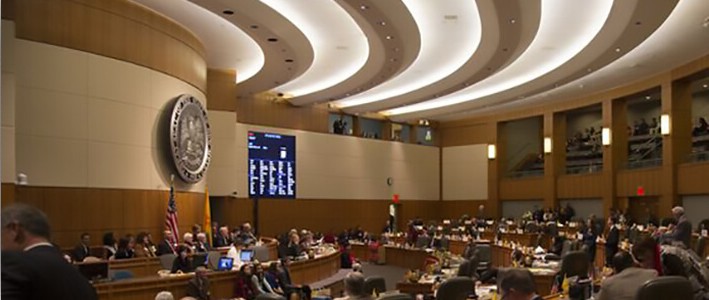
Communities and counties in southeastern New Mexico, like Hobbs and Lea County, that have adopted ordinances limiting access to reproductive healthcare are learning that the restrictions they have placed on providing such services are null and void.
On Thursday, March 16, Governor Michelle Lujan Grisham signed into law HB7 – the Reproductive and Gender-Affirming Health Care Freedom Act. The new law “…codifies a woman’s right to obtain an abortion in New Mexico,” states an article published by the Santa Fe New Mexican.
According to a CNN article published on March 17, “gender-affirming care is medically necessary, evidence-based care that uses a multidisciplinary approach to help a person transition from their assigned gender – the one the person was designated at birth – to their affirmed gender – the gender by which one wants to be known.”
In addition to prohibiting “…local municipalities and other public bodies from interferring with a person’s ability to access reproductive or gender-affirming health care services…,” HB7 curtails “…any public body from imposing laws, ordinances, policies or regulations that prevent patients from receiving reproductive or gender-affirming care,” states CNN.
Violations of the new law are costly. The bill provides for a fine of 5,000 or damages, whichever is greater, for each violation.
One of the sponsors of HB7 Sen. Linda Lopez, (D – Dist. 11), is on record as saying that the new law “…means the state of New Mexico is open and legal” and “…affirms what is already legal in the state of New Mexico — there shall be no discrimination for a woman to receive reproductive health care or abortion care services.”
Originally passed by the New Mexico House on February 21, by a vote of 38 to 31, and then by the Senate on March 7, by a vote of 23 to 15, HB7 was sent back to the House for final approval on Friday, March 10.
The House reviewed the bill for a second time as the result of minor amendments the Senate made to the initial legislation. After a healthy interchange on the House floor, the amended bill passed 39 to 29, with Republicans and a handful of Democrats voting “nay”. The bill was then sent to the governor’s desk for signature.
New Mexico Republicans Remain Opposed
New Mexico’s Republicans remain unsupportive of the legislation. They tend to align with other GOP-lead states that have placed restrictions on abortion or banned the procedure altogether since the Supreme Court’s overturning of Roe vs. Wade. Some conservative Democrats also oppose the legislation.
On the other hand, Democratic controlled states are reaffirming “…reproductive care in response to the Supreme Court’s landmark ruling,” states CNN.
New Mexico Attorney General Confirms Reproductive Healthcare Is Legal
New Mexico’s Attorney General Raúl Torrez is clear that reproductive healthcare is legal in New Mexico. Attty. Gen. Torrez is committed to protecting its legality. According to his press secretary Lauren Rodriguez, if necessary the attorney general “…will take formal, legal action to stop any unconstitutional restrictions on anyone attempting to access reproductive healthcare in New Mexico.”
In January Atty. Gen. Torrez asked the New Mexico Supreme Court to nullify local ordinances, like the ones passed in Hobbs and Lea County, “…that make it challenging, if not impossible, to obtain an abortion.” According to the Santa Fe New Mexican, press secretary Rodriguez stated in an email on Thursday, “This legislation [the signing into law of HB7] will be helpful in preventing local governments from attempting to regulate abortion in the future. We will evaluate how this recently passed legislation affects our pending action and stand prepared to defend it in future cases.”
Sen Lopez said that she expects court challenges to the new law. “Some of the medical services cited in HB 7 are abortion and measures to prevent pregnancy. The bill defines reproductive and gender-affirming health care as including ‘psychological, behavioral, surgical, pharmaceutical and medical care, services and supplies that relate to the human reproductive system,'” states the Santa Fe New Mexican article.
About the new law Gov. Lujan Grisham stated in a press release, “New Mexicans in every corner of our state deserve protections for their bodily autonomy and right to health care.” For getting the legislation to her desk the governor said, “I’m grateful for the hard work of the Legislature and community partners in getting this critical legislation across the finish line.”
The new law will become effective on June 18.


